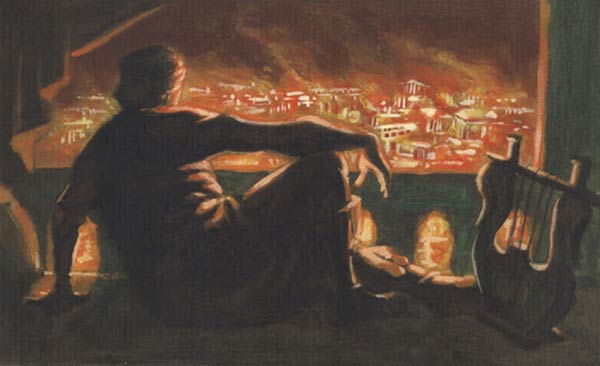Originally published May 29, 2016
Picking up where we left off, why was it so hard for me to follow the “delivered word?” Peer pressure was not part of my lexicon, and rebellion was not part of my thought process. Due to the circumstances of my childhood I was a loner, and I did not engage with people my own age. I was an observer, a patient planner towards the day I would be on my own. Somehow I was able to hide from the deeper impact of childhood abuse. Certainly, once I was grown up, I would be able to avoid these sorts of things. I just had to wait it out. That thought process was part of what made me question the theology I was being taught.
The problem began with the God of Job. Or, perhaps, the popular interpretation of Job. In the book of Job we see a man that God himself declares righteous, and without fault. Then all hell rains down on the man, and his so-called friends spend the majority of the book trying to discover what horrible sin he committed in deed or in thought. Toward the end, God steps in and tells them they are full of hot air. The debate about the real meaning of the text has gone on for centuries, but the vast majority of interpretations lean toward figuring out what evil thing Job did, what higher level of spirituality he obtained, or what lesson God was trying to teach him. My problem was that God said Job was righteous. There was nothing to “punish.”
Something simply did not add up.
If I were to take church doctrine at face value, God was something like a Santa Claus, watching my every thought. If I was a very good girl, good things would happen. If I was a bad girl, God would punish me. The trick, though, was that I might not always know what I had done that was bad. Just like Job, I felt there was something really important being left out of the debate. Was I being punished for something I didn’t know I had done wrong?
That didn’t make sense. God had time to watch my every thought? A personal God is one thing, but one that follows you around and pokes you for every wrong—real or perceived, acknowledged or unknown—seems to be a tragic waste of creative power. If we are supposed to receive undeserved grace, then how could my being good influence the outcome one way or the other? Wouldn’t that be a reward system? Ask these questions of a church leader and they would smile, with a knowing look, and tell you that you just don’t understand.
Yes! I get that. So, please, explain it to me.
Silence.
Was it valid to pray for success? Perfect health? Or, say, healing when you refused to give up what was making you sick? Was is fair to accuse a dying patient of not praying hard enough? After all, “God wants to heal you.” Then bring it on, brother! Let’s get the show on the road! Was I subjected to years of mind twisting childhood abuse because I didn’t pray enough? Does an entire state or country deserve to suffer massive devastation because of the perceived infractions of a few? Is it fair or right that some people could tell lies in the presence of those who knew they were lying, and still be allowed to bear witness against another person?
Try as I might, I could not worship a sovereign that plagued His creation with constant earned, and unearned trials, and tribulations. Try the same program on a human teenager (or anyone except a fanatic) and watch the results. The expected outcome just doesn’t fit with human nature. If a Sovereign Creator should know anything, it should be the nature of His created beings.
I had no choice. Even freed from a specific church body, the theology just did not fit. This God Box had to go.
The God Box ~ Part the First
The God Box ~ Part the Third
The God Box ~ Part the Fourth
The God Box ~ Part the Fifth
The God Box ~ Part the Sixth




No Comments